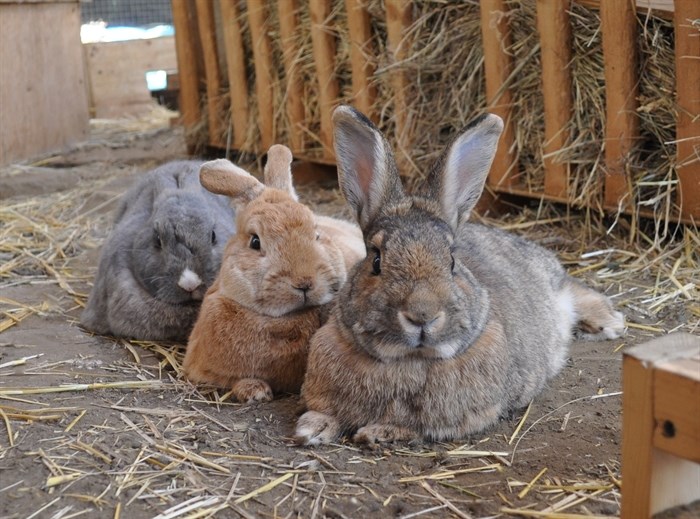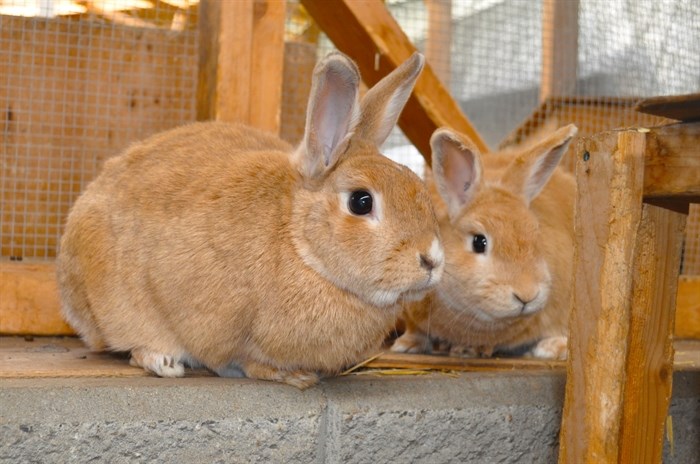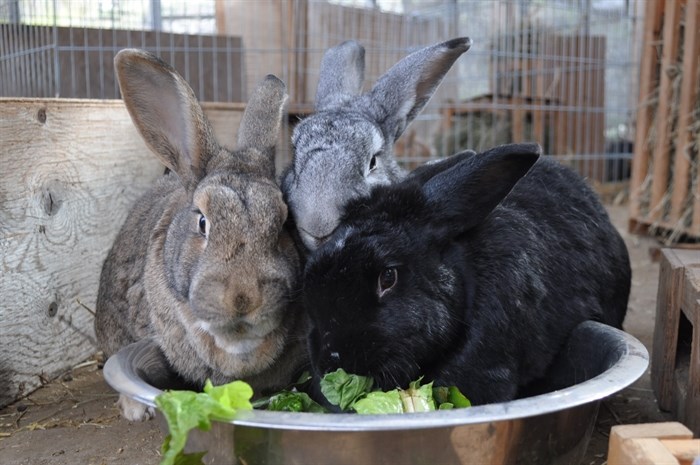
TRACS rescued more than 800 feral cats back in 2008.
Image Credit: Submitted/The Responsible Animal Care Society
June 18, 2020 - 7:00 AM
When rabbits started running wild along the streets of Kelowna more than a decade ago, Ian Wilson could understand why people were abandoning them.
“They’re not really the greatest of pets,” the City of Kelowna’s manager of infrastructure told iNFOnews.ca. He had one as a pet when he was a small child.
“They’re kind of cute but you couldn’t really play with it like a cat or a dog,” he said.
That may be why he was so well suited to deal with the issue, when he was city’s urban forests manager. The feral rabbit population exploded in 2008 as they started to spread beyond their traditional homes along Enterprise Road near Dilworth Drive.
“They were feral European rabbits so, presumably, they were someone’s pets that people had got tired of and put out into the environment and, I guess, others saw them there and went ‘I don’t want my rabbit so I’ll put mine out there too,’” Wilson said.
At one point Wilson had someone do a survey and estimated there were about 2,000 rabbits running free in Kelowna.
Concerns were raised by people over damage to their landscaping, creating erosion problems or harm to the agricultural community as they were spreading beyond the Enterprise Road industrial area.
The city decided to take action and hired a contractor to cull the rabbits, which were considered an invasive species by the province, Wilson said. The cull included shooting many with a special air rifle and allegations that at least one wounded bunny had its head stomped by a worker.
That, of course, sparked outrage amongst animal lovers as an estimated 600 rabbits were killed.
That brought TRACS to the rescue.

Image Credit: Submitted/The Responsible Animal Care Society
The Responsible Animal Care Society, according to its website, was founded in 1994 by a group of Upper Glenrosa residents upset about horse neglect.
While it still exists and does some work in the animal rescue field, its glory days came with its Feral Rabbit Relocation Program, initially under contract to the city.
It saved more than 800 of the rabbits, housing them in large pens and having them spayed and neutered. But, along with the 600 it estimates were killed in the cull, that left another 600 or so unaccounted for.
“There was also a certain amount of predation and lives lost to cars,” Jenny Hildebrand, from TRACS, wrote in an email.
Their main home along Enterprise Road was close to brush to den in and Mill Creek was a water source.
“We believe many rabbits were abandoned in that area,” Hildebrand wrote. “It only takes a few rabbits to create a colony in a very short time. The public was urged to not feed them, however compassion overruled. With the food source being plenty, lots of bushes to den under and minimal predation, the rabbits were able to survive and breed causing the population to explode in that area. Some of the other areas which had colonies were caused by the same issue, however Enterprise is a well-traveled road which made it fun for people to see and feed them there."
The society captured rabbits in Glenmore, Black Mountain, Rutland, Lower Mission and Mission Creek Park.
At its peak, there were 15 to 20 volunteers capturing the rabbits, fundraising to pay for their spaying and neutering along with fostering and sheltering the rabbits.
Domestic rabbits can live for 12 years or more and many were pregnant when they were captured. There are less than 50 still alive out of the original group and fewer than 10 volunteers working with them.
In 2019, the owner of their largest “sanctuary” sold her land so the remaining rabbits were relocated to a new property, once it was rezoned. It’s owned by the same woman and two large shelters house the rabbits, which range in age from two to 13.
Hildebrand did not say, in her email, why there are such young rabbits in the group but did note rescue efforts continued beyond the initial contract with the city.

Image Credit: Submitted/The Responsible Animal Care Society
Because of the fear of Rabbit Hemorrhagic Viral Disease and the fact that the shelters are on private property, only the volunteers are able to visit the rabbits.
Back at the time Kelowna was having the explosion of feral rabbits, other cities were facing similar challenges, most notably the University of Victoria. As recently as 2018 there were news stories about feral rabbits still being a problem in the Victoria area.
But it hasn’t resurfaced as a problem in Kelowna.
“The biggest factor on it not happening again is that TRACS was instrumental in helping pass a bylaw stating no rabbit can be sold, adopted or given away within City of Kelowna limits, unless it has been spayed or neutered,” Hildebrand wrote. “As a result, rabbits are not being sold at pet stores, it is too costly for pet stores to have the procedure done. We also worked hard long after the contract with the City was complete to humanely trap any rabbits left on the street as well as continue to educate the public.”
Wilson can’t recall whose idea the bylaw was, but he was the one to push it through city council.
“To my knowledge, we’re probably one of the only cities in the world that’s successfully got rid of the feral rabbit issue,” he said. “There’s places like Australia and Helsinki and other cities where, you can never fully eliminate them. You have to learn how to control the damage.”
In the end, Hildebrand has a slightly different perspective than Wilson on the suitability of rabbits as pets.
“Rabbits are special pets that need a lot of attention and care,” she wrote. “Our policies are in place to educate and hopefully ensure we do not see any more rabbits abandoned.”
For more information on feral rabbits, go here.
To contact a reporter for this story, email Rob Munro or call 250-808-0143 or email the editor. You can also submit photos, videos or news tips to the newsroom and be entered to win a monthly prize draw.
We welcome your comments and opinions on our stories but play nice. We won't censor or delete comments unless they contain off-topic statements or links, unnecessary vulgarity, false facts, spam or obviously fake profiles. If you have any concerns about what you see in comments, email the editor in the link above.
News from © iNFOnews, 2020